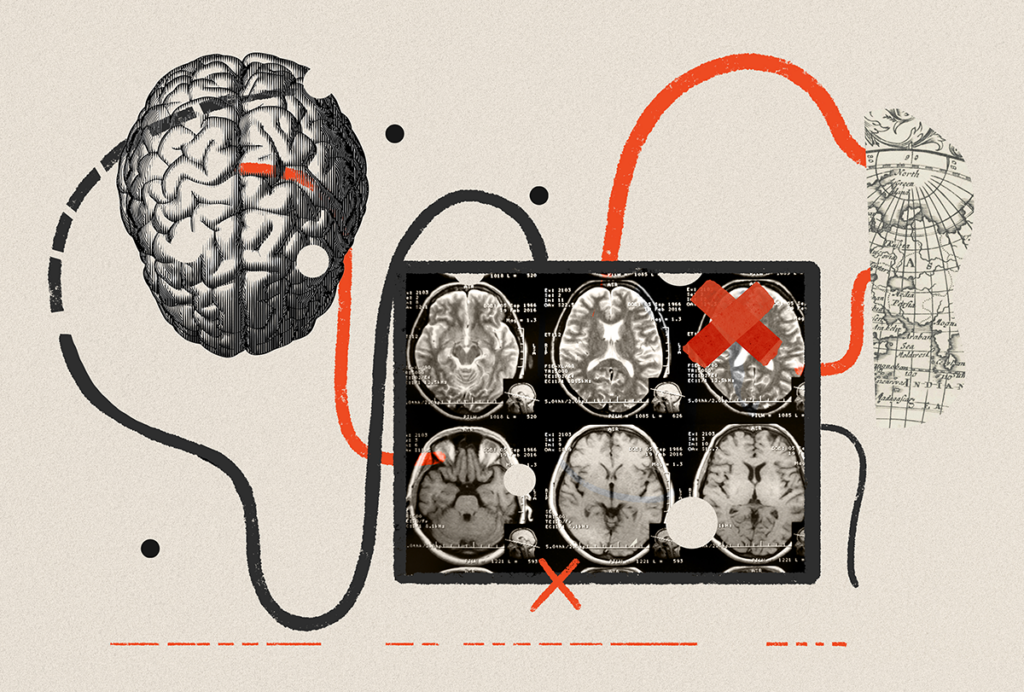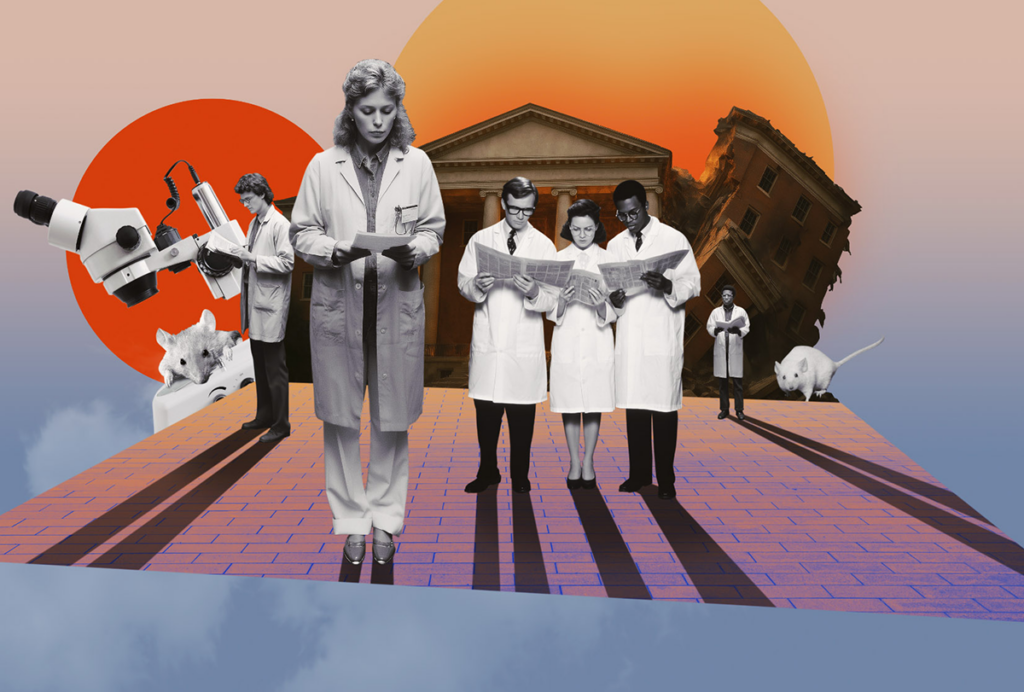Policy
Recent articles
Two primate centers drop ‘primate’ from their name
The Washington and Tulane National Biomedical Research Centers—formerly called National Primate Research Centers—say they made the change to better reflect the breadth of research performed at the centers.

Two primate centers drop ‘primate’ from their name
The Washington and Tulane National Biomedical Research Centers—formerly called National Primate Research Centers—say they made the change to better reflect the breadth of research performed at the centers.
Is there a neuroscientist in the House?
Sam Wang, a neuroscientist running for the U.S. House of Representatives, has been considering American democracy for decades.

Is there a neuroscientist in the House?
Sam Wang, a neuroscientist running for the U.S. House of Representatives, has been considering American democracy for decades.
Oregon primate research center to negotiate with NIH on possible transition to sanctuary
The board of directors at Oregon Health & Science University, which runs the primate center, voted unanimously in favor of the move.

Oregon primate research center to negotiate with NIH on possible transition to sanctuary
The board of directors at Oregon Health & Science University, which runs the primate center, voted unanimously in favor of the move.
NIH scraps policy that classified basic research in people as clinical trials
The policy aimed to increase the transparency of research in humans but created “a bureaucratic nightmare” for basic neuroscientists.

NIH scraps policy that classified basic research in people as clinical trials
The policy aimed to increase the transparency of research in humans but created “a bureaucratic nightmare” for basic neuroscientists.
‘Peer review is our strength’: Q&A with Walter Koroshetz, former NINDS director
In his first week off the job, the former National Institute of Neurological Disorders and Stroke director urges U.S. scientists to remain optimistic about the future of neuroscience research, even if the executive branch “may not value what we do.”

‘Peer review is our strength’: Q&A with Walter Koroshetz, former NINDS director
In his first week off the job, the former National Institute of Neurological Disorders and Stroke director urges U.S. scientists to remain optimistic about the future of neuroscience research, even if the executive branch “may not value what we do.”
After NINDS director ouster, 40 neuroscience organizations press U.S. Congress for oversight over hiring process
A letter signed by the groups asks Congress to ensure that scientific expertise remains a priority in the search for a new director of the National Institute of Neurological Disorders and Stroke.

After NINDS director ouster, 40 neuroscience organizations press U.S. Congress for oversight over hiring process
A letter signed by the groups asks Congress to ensure that scientific expertise remains a priority in the search for a new director of the National Institute of Neurological Disorders and Stroke.
BRAIN Initiative researchers ‘dream big’ amid shifts in leadership, funding
But whether the initiative’s road map for the next decade is feasible remains an open question.

BRAIN Initiative researchers ‘dream big’ amid shifts in leadership, funding
But whether the initiative’s road map for the next decade is feasible remains an open question.
Neuroscience, BRAIN Initiative gain budget in ‘bad’ NIH funding bill
The bill goes before the House of Representatives today and outlines increases for neuroscience-related research—including a 33 percent increase to the BRAIN Initiative—but maintains a multiyear spending approach that could limit the number of grants awarded overall.

Neuroscience, BRAIN Initiative gain budget in ‘bad’ NIH funding bill
The bill goes before the House of Representatives today and outlines increases for neuroscience-related research—including a 33 percent increase to the BRAIN Initiative—but maintains a multiyear spending approach that could limit the number of grants awarded overall.
The Transmitter’s top news articles of 2025
Check out some of our most-read stories, covering neuroscience funding and policy changes in the United States, and methodological issues in high-profile neuroscience papers.

The Transmitter’s top news articles of 2025
Check out some of our most-read stories, covering neuroscience funding and policy changes in the United States, and methodological issues in high-profile neuroscience papers.
The Transmitter’s favorite essays of 2025
Throughout a tumultuous year in science, researchers opined on policy changes and funding uncertainty, as well as scientific trends and the impact of artificial-intelligence tools on the field.

The Transmitter’s favorite essays of 2025
Throughout a tumultuous year in science, researchers opined on policy changes and funding uncertainty, as well as scientific trends and the impact of artificial-intelligence tools on the field.
Explore more from The Transmitter
Neuro’s ark: Spying on the secret sensory world of ticks
Carola Städele, a self-proclaimed “tick magnet,” studies the arachnids’ sensory neurobiology—in other words, how these tiny parasites zero in on their next meal.

Neuro’s ark: Spying on the secret sensory world of ticks
Carola Städele, a self-proclaimed “tick magnet,” studies the arachnids’ sensory neurobiology—in other words, how these tiny parasites zero in on their next meal.
Autism in old age, and more
Here is a roundup of autism-related news and research spotted around the web for the week of 2 March.

Autism in old age, and more
Here is a roundup of autism-related news and research spotted around the web for the week of 2 March.
Lack of reviewers threatens robustness of neuroscience literature
Simple math suggests that small groups of scientists can significantly bias peer review.

Lack of reviewers threatens robustness of neuroscience literature
Simple math suggests that small groups of scientists can significantly bias peer review.